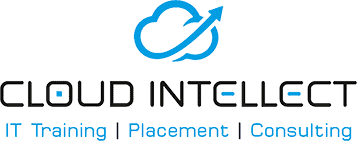
Maintaining strong coordination among revenue teams is critical for driving success in today’s rapidly evolving business landscape. Companies must adapt and embrace innovative solutions that enable seamless collaboration, enhance efficiency, and maximize revenue generation. Salesforce, a leading customer relationship management (CRM) platform, has emerged as a game-changer for organizations seeking to streamline their revenue operations.
With its robust features, extensive customization options, and advanced automation capabilities, Salesforce offers a transformative solution to improve revenue team coordination.
However, harnessing the full potential of Salesforce trends requires a comprehensive understanding of its best practices and the expertise to implement them effectively.
This is where experts providing Salesforce training in Nagpur come into play. With their in-depth knowledge and practical insights, these professionals empower businesses to unlock the value of Salesforce and optimize revenue team performance.
In this article, we will explore eight Salesforce best practices recommended by these experts, focusing on how they can enhance revenue team coordination. From prioritizing high-quality data and ensuring security to leveraging automation and integrating Salesforce with other tools, these practices lay the foundation for seamless collaboration, increased productivity, and remarkable revenue growth.
By embracing these practices, businesses can revolutionize their revenue operations and achieve outstanding results.
Benefits of these Practices:
If your team follows these best practices, they can:
- You have more time to connect with consumers and close deals because your sales team is more efficient and effective.
- Keep critical data accurate, dependable, and current on your clients and your company.
- Users from different teams may collaborate and share information with ease, thanks to Salesforce. From marketing to sales to customer success and beyond, everyone stays on the same page thanks to a central source of consumer information.
- Keep a record of your encounters with clients and get a deeper understanding of their needs so you can develop stronger bonds with them, provide them with customized solutions, and improve the customer experience.
So, let’s dive into the world of Salesforce and discover how these best practices can empower your revenue teams to exceed expectations and drive success in the dynamic marketplace.
8 Salesforce Best Practices to Improve Revenue Team Coordination:
- Customize Salesforce to Fit Your Business Processes:
One of the key strengths of Salesforce is its flexibility. Customize the platform to align with your unique business processes to improve revenue team coordination. By tailoring Salesforce to suit your needs, you can enhance efficiency and ensure seamless collaboration across different teams.
- Focus on High-Quality Data:
Data is the lifeblood of any successful revenue team. To optimize coordination, ensure that the data within your Salesforce instance is accurate, complete, and up to date. This requires regular data cleansing, deduplication, and validation processes. By maintaining high-quality data, teams can make informed decisions, streamline processes, and provide personalized experiences to customers.
- Prioritize Security:
As businesses handle sensitive customer information, ensuring the security of Salesforce data is paramount. Implement robust security measures like multi-factor authentication, role-based access controls, and regular security audits. By prioritizing security, you can safeguard confidential information, build customer trust, and comply with data protection regulations.
- Automate for Efficiency:
Salesforce offers many automation capabilities that significantly improve team coordination and productivity. Leverage automation tools to streamline repetitive tasks, such as data entry, lead qualification, and follow-up activities. By automating these processes, revenue teams can focus on more value-added activities, ultimately driving revenue growth.
- Connect Salesforce with Your Other Tools:
To foster better team coordination, integrate Salesforce with other tools and systems used by your revenue teams. Seamless integration eliminates manual data transfer and allows real-time data synchronization across platforms. Whether it’s connecting Salesforce with marketing automation tools or customer support systems, integration enhances cross-functional collaboration and provides a holistic view of customer interactions.
- Follow a Change Management Plan:
Implementing Salesforce successfully requires effective change management. Create a structured plan to educate and train your revenue teams on using Salesforce effectively. Offer Salesforce classes and training sessions to ensure everyone is well-equipped to leverage the platform’s capabilities. Emphasize the benefits of Salesforce adoption, address concerns, and provide ongoing support to facilitate a smooth transition.
- Automate Lead Routing and Assignment:
Efficient lead management is crucial for revenue team coordination. Utilize Salesforce’s lead assignment rules and automated workflows to ensure leads are routed to the right team members promptly. By automating this process, you can avoid bottlenecks, reduce response times, and enhance the overall customer experience.
- Set up a Dashboard to Track Your Team’s KPIs:
Visibility into key performance indicators (KPIs) is vital for revenue team coordination and improvement. Create customized dashboards in Salesforce to monitor relevant metrics, such as conversion rates, pipeline velocity, and revenue generated. Real-time insights enable teams to identify areas of improvement, celebrate successes, and make data-driven decisions to drive revenue growth.
Conclusion:
Effective revenue team coordination is crucial to achieving sustainable business growth. By implementing these eight Salesforce best practices, businesses can leverage the power of the CRM platform to enhance collaboration, streamline processes, and drive revenue generation. Customizing Salesforce, prioritizing high-quality data, and automating repetitive tasks are fundamental to optimizing team performance. Connecting Salesforce with other tools, following a change management plan, and automating lead routing ensures efficient operations. Finally, setting up dashboards to track team KPIs provides actionable insights for continuous improvement.
With Salesforce training in Nagpur and adopting these best practices, businesses can unlock their revenue team’s full potential and achieve remarkable results.

